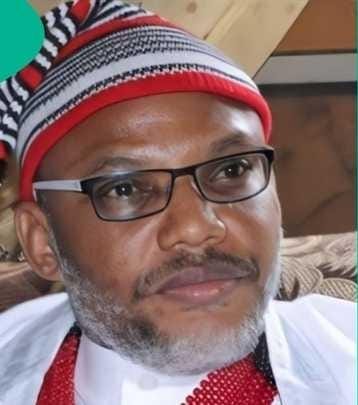The sentencing of Mazi Nnamdi Kanu, leader of the Indigenous People of Biafra (IPOB), to life imprisonment by a Federal High Court in Nigeria on charges related to terrorism, incitement, and organised violence, has elicited mixed domestic and international reactions.
The court presided by Justice James Omotosho found Kanu guilty on all seven counts, which included inciting violence through broadcasts, leading a proscribed organisation, and issuing disruptive sit-at-home orders that caused economic disruption in Southeast Nigeria and contributed to sustained insecurity and unrest in the region.
The trial lasted almost a decade, with Kanu supporters describing the process as a move to silence dissent and political interference in the judiciary, while opponents see it as a necessary measure for national security.
The prosecution built its case against Kanu largely on intercepted communications, eyewitness testimonies (secured via video link to ensure anonymity), and medical reports documenting reported injuries and fatalities sustained during enforcement of IPOB’s sit-at-home directives. The directives were declared unlawful and classified as terrorist acts.
There were also transcripts of Kanu’s radio broadcasts and social media messages, which the prosecution said incited attacks on security personnel, government installations, and civilians, resulting in injuries and fatalities.
IPOB was proscribed and designated as a terrorist organisation by the Nigerian government in 2017.
Kanu’s defence lawyers raised several objections, challenging the court’s jurisdiction and the law under which he was tried. They contended that his unlawful rendition from Kenya, while on bail after he fled the country when Nigerian security agents invaded his house, violated diplomatic protocols and international statutes.
The defence also accused the prosecution of relying on a repealed Terrorism Prevention (Amendment) Act of 2013, which they claim is invalid.
Midway into his trial, Kanu sacked his defence lawyers and decided to defend himself. He insisted that the Court of Appeal had earlier discharged him on the same charges.
He argued that he fled Nigeria, while on bail, because the security agents, who invaded his home, had wanted to kill him.
The IPOB leader maintained that he had no case to answer and also petitioned the Supreme Court to reverse its order for his continued trial.
During his sentencing, he was ejected from the courtroom for disrupting proceedings, before the judge handed down the life sentence to him.
In reaching his judgment, Justice Omotosho cited considerations rooted in Christian teachings advocating forgiveness and Nigeria’s international commitments against capital punishment in political cases.
Some critics have dubbed Kanu’s trial “politically motivated” and the sentencing a “judicial murder, which undermines human rights and judicial independence.” The case could also become a rallying point for his supporters.
Others say the case marks a turning point in Nigeria’s ongoing battle against separatist movements and terrorism, adding that it is expected to deter other groups from contemplating similar actions.
The ruling could also adversely affect IPOB’s influence and operational capacity, especially on its sit-at-home orders.
Some legal experts argue that Kanu’s jailing could strengthen Nigeria’s fight against terrorism, but warn that it could also raise serious questions about the legal processes involved.
The UK government, Amnesty International and other international human rights groups have condemned Kanu’s trial as “unfair” and called for fair judicial processes.
Some analysts argue that Kanu’s case highlights Nigeria’s complex history with separatist agitation, noting that the court’s decision could shape future legal and security approaches toward self-determination and related insurgencies.
Dr Sonny Onyegbula is a U.S.-based Legal Consultant
![]()








